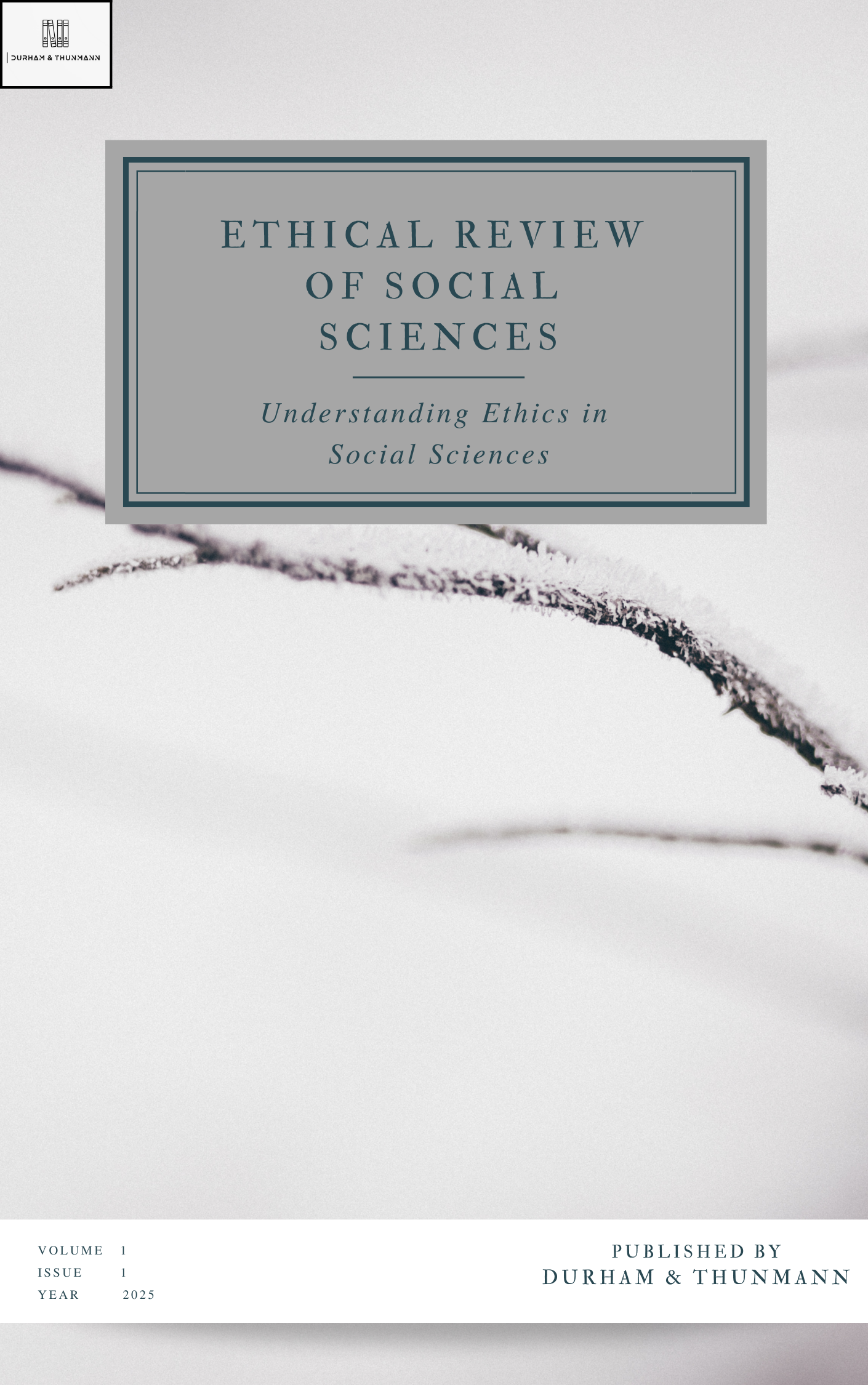From Decentralization to Ethical Resilience: A Critical Reappraisal and Extension of Hayek’s Theory of Knowledge in Society

Published 11.02.2025
Keywords
- Decentralized Knowledge,
- Digital Monopolies,
- Ethical Resilience,
- Market Coordination,
- Price Mechanism
Copyright (c) 2025 Frans Lavdari (Author)

This work is licensed under a Creative Commons Attribution-NonCommercial-NoDerivatives 4.0 International License.
How to Cite
Abstract
Friedrich Hayek’s The Use of Knowledge in Society presents a seminal argument for the virtues of decentralized knowledge and the price mechanism, positing that markets, by leveraging dispersed, context-specific knowledge, can achieve efficient resource coordination without central oversight. Hayek’s work has deeply influenced economic thought, particularly in its defence of spontaneous order and its critique of central planning. However, Hayek’s framework, developed in a pre-digital and less interconnected economic landscape, reveals limitations when confronted with today’s challenges, such as digital monopolies, ecological degradation, and economic inequality. This article critically examines Hayek’s theoretical positions, revealing inconsistencies and limitations when applied to the complexities of modern global economies. The article then presents an evolved framework—the Ethically Resilient Market Theory (ERMT)—which builds upon Hayek’s insights, incorporating principles of ethical accountability, ecological valuation, and resilience to address the ethical and practical demands of contemporary economic life.
Downloads
References
- Costanza, R., d'Arge, R., de Groot, R., Farber, S., Grasso, M., Hannon, B., Limburg, K., Naeem, S., O'Neill, R. V., Paruelo, J., Raskin, R. G., Sutton, P., & van den Belt, M. (1997). The value of the world's ecosystem services and natural capital. Nature, 387(6630), 253-260. https://www.nature.com/articles/387253a0.
- Hayek, F. A. (1945). The Use of Knowledge in Society. American Economic Review, 35(4), 519-530. https://www.jstor.org/stable/1809376.
- Leopold, A. (1949). A Sand County Almanac: And Sketches Here and There. Oxford University Press.
- Mazzucato, M. (2018). The Value of Everything: Making and Taking in the Global Economy. PublicAffairs.
- Nussbaum, M. C. (2000). Women and Human Development: The Capabilities Approach. Cambridge University Press. https://doi.org/10.1017/CBO9780511841286.
- Polanyi, M. (1966). The Tacit Dimension. Routledge & Kegan Paul.
- Rawls, J. (1971). A Theory of Justice. Harvard University Press. https://www.hup.harvard.edu/catalog.php?isbn=9780674000780.
- Samuelson, P. A. (1954). The Pure Theory of Public Expenditure. The Review of Economics and Statistics, 36(4), 387–389.
- Sen, A. (1999). Development as Freedom. Oxford University Press. https://global.oup.com/academic/product/development-as-freedom-9780192893307?cc=no&lang=en&.
- Stern, N. (2007). The Economics of Climate Change: The Stern Review. Cambridge University Press.
- Stiglitz, J. E. (2002). Globalization and Its Discontents. W.W. Norton & Company.
- Zuboff, S. (2019). The Age of Surveillance Capitalism: The Fight for a Human Future at the New Frontier of Power. Public Affairs.
- Yoon, Y. (2023). Forging a Moral Basis for Emerging Economies. Journal of Global Trade, Ethics and Law, 1(3), 26-35. https://doi.org/10.5281/zenodo.10059725.
